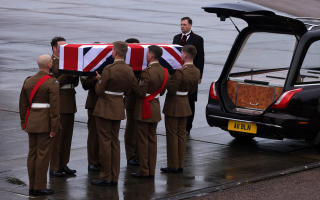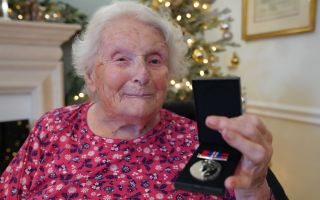
Hundreds of military applications reconsidered after 'outdated' medical checks scrapped

Hundreds of failed military applicants could be given another chance after rule changes to medical entry criteria, MPs have heard.
In September, Defence Secretary John Healey announced potential recruits with conditions like acne or asthma would no longer be barred from serving.
Speaking in the House of Commons on Monday, Armed Forces Minister Luke Pollard said: "More than 700 applications have been reconsidered following the removal of 100 outdated medical policies such as blocking some sufferers of hay fever, eczema and acne."
An MOD briefing note from 2019 said those with severe acne should be graded unfit or be deferred until their acne had been treated before they could be allowed to join up.
The department said the condition might otherwise "affect the ability to wear military clothing or to operate military equipment".
The British Army said if an individual required treatment to manage their asthma, they would "not be eligible".
However, it did add that rules on asthma and other medical conditions were considered on a case-by-case basis when taken through an appeal process.
When Conservative MP Richard Holden asked if there will be a year of actual net growth in personnel strength between now and 2030, Mr Pollard said progress will take time and highlighted previous failures to hit recruitment targets under the Tory government.

After September's announcement, the Government said the recruitment process would also be accelerated, and Liberal Democrat Helen Maguire stressed the general need for speed in the medical assessment phase of applications.
"I've heard from a number of young people who've tried to join the military only to be met with long waits for their medical assessment," she told the defence minister.
"I understand the need for applicants to be thoroughly assessed but we are losing valuable recruits due to the processing time. Many cannot afford to wait around and, ultimately, they choose a different path."
Alongside the headline removal of what he called "outdated" medical processes, Mr Pollard cited ongoing work "with colleagues across health" to ensure smooth access to medical records – for a more efficient journey from an application into a training base.









